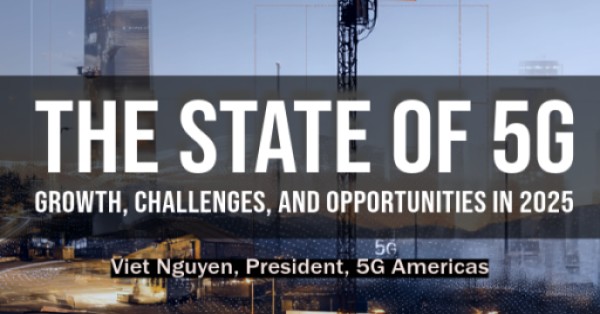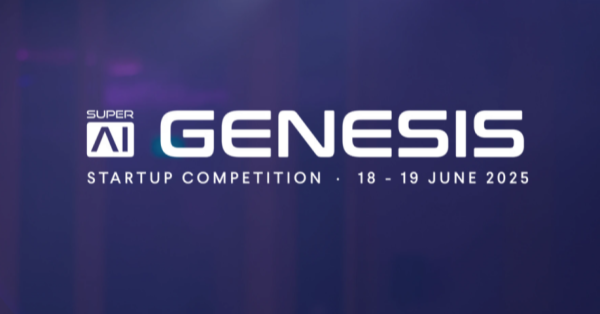Innovation In Action: How Media Leaders Embrace AI to Shape the Future
In 2025, artificial intelligence (AI) continues to reshape industries, profoundly disrupting traditional business models and paving the way for unprecedented innovation. This keynote session, titled “Innovation in Action,” brings together industry visionaries and leaders who are at the forefront of harnessing transformative technologies to drive change. Through engaging panel discussions and insightful conversations, speakers explored how AI’s integration into sectors such as media and enterprise is not just inevitable but essential.
Moderated by Nate Lanxon, technology journalist and editor at Bloomberg, the session began by highlighting AI’s historical context, referencing Time magazine’s archives from 1984, predicting AI’s widespread adoption. This provided a compelling backdrop for understanding AI’s transformative journey from speculative innovation to a core operational tool. The discussion further emphasized how AI has moved beyond theoretical applications to become an indispensable element in modern business and journalism, shaping workflows, decision-making processes, and audience engagement strategies.
How AI is Disrupting and Transforming the News Industry
During the “Shifting Sands of Media” panel, Jessica Sibley, CEO of Time, and Nicholas Johnston, Publisher at Axios, engaged in a thoughtful conversation about AI’s profound impact on journalism and newsrooms worldwide. They explored how industry fragmentation is simultaneously causing disruption and creating unique opportunities for new, adaptive business models.
Inside TIME’s AI-Driven Journalism Strategy
Jessica Sibley emphasized Time’s proactive and strategic embrace of AI, positioning the brand as an authoritative voice on technology innovation. Through initiatives such as the AI 100—a prestigious annual list recognizing global tech pioneers—Time actively shapes the discourse around AI. Sibley explained that Time’s adoption of AI goes beyond maintaining relevance; it’s about expanding their audience reach and enhancing reader engagement through personalized experiences.
Highlighting their collaboration with Scale AI on the iconic “Person of the Year” feature, Sibley described how Time utilized multimodal content formats, including multilingual articles, interactive chats, and audio summaries. This approach underscores the company’s commitment to accessibility, personalization, and engaging readers across preferred consumption channels. Additionally, AI is integrated into editorial workflows to streamline fact-checking, optimize content distribution, and improve audience targeting through data-driven insights.
Why Axios is Partnering with AI Instead of Resisting It
Nicholas Johnston shared Axios’s decision to adopt AI through collaboration rather than resistance, reflecting lessons learned from previous technological shifts such as digital transformation. Axios strategically partnered with OpenAI to enhance newsroom efficiency and journalistic quality. Johnston drew parallels to past skepticism toward digital technologies, emphasizing that resistance to AI would hinder progress.
Axios leverages AI primarily to automate routine newsroom tasks, thereby empowering journalists to focus on investigative reporting, exclusive interviews, and deep analytical pieces. Johnston stressed the importance of AI as an enabler rather than a replacement, asserting that human insight remains irreplaceable, especially in nuanced journalism. Axios is also exploring AI-driven personalization tools that tailor content recommendations based on reader preferences while ensuring editorial integrity.
Balancing AI Integration with Editorial Integrity
Both Sibley and Johnston underscored the critical importance of keeping human judgment at the forefront of journalism, even as AI integration intensifies. Transparency emerged as a foundational principle for Axios, with Johnston detailing their “Axios Bill of Rights,” which guarantees readers rigorous human oversight of AI-generated content.
Sibley similarly reiterated Time’s longstanding commitment to trust and balanced journalism. By meticulously vetting AI partners, Time ensures that technological advancements align seamlessly with its core values of editorial excellence and ethical responsibility. Both leaders acknowledged the risks associated with AI, particularly around misinformation and the potential erosion of journalistic credibility if not carefully managed.
The Ethics of AI in Journalism: Innovation vs. Trust
The executives openly discussed the complexities involved in balancing rapid technological innovation with reader trust and ethical journalism. Sibley highlighted Time’s rigorous approach to selecting AI partners, emphasizing shared ethical standards, clear business goals, and transparency. Johnston reinforced Axios’s careful strategy of integrating AI collaboratively, always ensuring human oversight and accountability.
The conversation also touched on the evolving regulatory landscape surrounding AI in media. Both leaders acknowledged the need for industry-wide standards to ensure AI tools are used responsibly and do not undermine journalistic integrity.
The Future of AI in Media: Expanding Coverage & Impact
The session concluded with optimism about AI’s transformative potential in media. Johnston envisioned a significant expansion of Axios’s coverage, potentially reaching thousands of cities globally, made possible by strategic AI integration. Sibley similarly saw AI as crucial for Time’s continued relevance and evolution, ensuring its influence persists through digital innovation and interactive storytelling.
AI Agents in Business: How Automation is Reshaping Enterprises
In a captivating fireside chat moderated by Anna Stewart from CNN, Bret Taylor—co-founder of Sierra, former Co-CEO of Salesforce, CTO of Facebook, and co-creator of Google Maps—shared his insights on the Agentic AI revolution. Taylor articulated how AI agents are poised to transform businesses profoundly by automating complex workflows, making decisions autonomously, and fundamentally altering enterprise operations globally.
Through his company, Sierra, Taylor aims to lead this next AI evolution, emphasizing AI agents’ potential to redefine efficiency, scalability, and competitive advantage across industries. He elaborated on how AI agents will transition from merely providing recommendations to actively executing high-level operational tasks, freeing up human workers for strategic decision-making and innovation.
Taylor also touched on the ethical implications of AI-driven automation, stressing the need for responsible deployment and governance to ensure AI agents enhance human productivity without exacerbating job displacement concerns.
The Future of AI & Human Collaboration in Media and Business
“Innovation in Action” vividly illustrated how forward-thinking leaders are strategically embracing AI, navigating challenges, and setting new industry benchmarks. The discussions underscored AI’s capacity to drive progress, enhance efficiency, and foster innovation while maintaining ethical standards and human oversight. Ultimately, the session showcased a vision for a future where technology and human values collaboratively advance society, drive innovation, and redefine industries worldwide.
Session Speakers
Jessica Sibley | TIME, CEO
Nicholas Johnston | axios, publisher
























